Odoo has emerged as a leading Enterprise Resource Planning (ERP) and business management solution. It offers a comprehensive suite of applications that can streamline various business processes, from accounting and inventory management to CRM and e-commerce. Odoo’s modular approach allows businesses to select and integrate the specific tools they need, making it a versatile choice for companies of all sizes and industries.
Choosing the right software solution is a critical decision for any business. While Odoo offers a wide range of functionalities, understanding its pricing plans and features is essential to ensure that you invest wisely. Different businesses have unique needs and budgets, and by comprehending the pricing structures and the corresponding features, you can make an informed decision that aligns with your specific requirements.
In this comprehensive blog, we will delve into Odoo’s pricing plans, dissecting the features they offer, and helping you navigate choosing the right plan for your business. We will explore the various modules and applications available, shedding light on how each can benefit your organization. By the end of this guide, you will have a clear understanding of Odoo’s pricing structure and a roadmap to leverage its powerful features effectively.
Understanding Odoo’s Pricing Structure
Odoo offers a tiered pricing structure that caters to businesses of all sizes. These pricing tiers are designed to accommodate the varying needs and budgets of different organizations. Whether you are a small startup or a large enterprise, Odoo has pricing options to suit your requirements.
How Pricing Is Determined
Odoo’s pricing is determined by the number of users and the specific applications/modules you choose. Unlike some traditional software solutions that charge a fixed fee per user, Odoo allows you to select the applications you need, which can result in significant cost savings. This modular approach ensures that you only pay for what you use, making it a cost-effective choice.
The Flexibility of Odoo’s Pricing
One of the standout features of Odoo’s pricing is its flexibility. Businesses can start with a basic plan and then scale up as they grow and require additional features. This scalability ensures that you are not locked into a one-size-fits-all pricing model. You have the freedom to tailor your Odoo subscription to your evolving needs, making it an adaptable solution that helps in growing your business.
Odoo’s Free Plan (Community Edition)
Odoo’s Free Plan, also known as the Community Edition, offers a range of powerful features and applications to help businesses manage their operations efficiently. Some of the key features included in this plan are as follows:
- Open-Source Software: The Community Edition is open-source, meaning you have access to the source code and can customize it to meet your specific business needs.
- Core Modules: It includes essential modules like CRM (Customer Relationship Management), Sales, Inventory, and Accounting to streamline your business processes.
- Unlimited Users: Unlike many other free plans, Odoo’s Community Edition allows an unlimited number of users, making it suitable for small businesses with growing teams.
- Community Support: While this plan doesn’t come with official Odoo support, you can access community forums and resources for assistance.
The Free Plan is an excellent choice for startups, small businesses, and nonprofits that need a robust ERP and business management solution without the initial financial commitment. It caters to businesses that have a limited budget, require essential features, and have the technical expertise to tailor the software to their requirements.
While the Free Plan offers valuable features, there are limitations to be aware of including:
- Limited Apps: You won’t have access to all of Odoo’s applications in the Community Edition. Advanced features like Marketing Automation and Helpdesk are not included.
- Community Support: While there is an active community of users and contributors, you won’t receive official support from Odoo. You may need to rely on community resources for troubleshooting and customization.
- Upgrading: If your business grows and requires more advanced features, you may need to consider upgrading to one of Odoo’s paid plans.
In summary, the Free Plan (Community Edition) is an excellent starting point for small businesses looking to streamline their operations with a reliable ERP solution. However, businesses with more complex needs or a desire for official support may find value in Odoo’s paid plans.
Odoo’s Subscription Plans
Odoo offers a range of subscription plans, each tailored to specific business needs. The features included in these plans cover various aspects of enterprise resource planning and business management. Some of the key features you can expect in Odoo’s subscription plans include:
- Access to All Apps: Unlike the free plan, subscription plans provide access to the complete suite of Odoo applications, which includes CRM, Sales, Inventory, Manufacturing, Accounting, and more.
- Dedicated Support: Subscribers receive access to Odoo’s official support channels, ensuring timely assistance with any issues or questions.
- Cloud Hosting: Odoo’s subscription plans come with cloud hosting, which eliminates the need for businesses to manage their own servers and IT infrastructure.
- Regular Updates: Odoo constantly updates its platform with new features and improvements. Subscribers benefit from these updates, ensuring their software remains up-to-date and competitive.
- Integration Capabilities: Subscription plans often include enhanced integration options, allowing businesses to connect Odoo with other software solutions seamlessly.
Odoo’s pricing structure is based on a tiered model, with each tier offering a different set of features and capabilities. While specific pricing details may change over time, Odoo typically offers the following subscription plans:
- Starter: This plan is designed for small businesses and startups. It provides access to essential features and applications at an affordable price point.
- Business: The Business plan offers more advanced features and is suitable for growing businesses with expanding needs. It often includes additional applications and support options.
- Enterprise: The Enterprise plan is the most comprehensive and includes access to all Odoo applications. It is ideal for large enterprises with complex requirements.
- Custom: Odoo also offers custom pricing for businesses with unique needs. This option allows companies to tailor their subscription to their exact specifications.
One of the advantages of Odoo’s subscription plans is their scalability. As your business grows, you can easily upgrade your subscription to a higher tier to access more features and capabilities. This scalability ensures that Odoo can continue to meet your business’s changing requirements over time.
Additionally, Odoo’s flexible pricing allows you to add or remove users as needed, ensuring that you only pay for the resources you use. This adaptability makes Odoo a cost-effective choice for businesses of all sizes.
Odoo’s Additional Modules and Apps
With Odoo ERP custom-made solutions, business owners can elevate their operations and meet their current challenges with ease. By implementing custom modules and applications, businesses can better analyze processes, gain insight into their buyers’ behavior, and customize user experiences. Odoo Enterprise Edition has highly advanced features that help your business achieve customer satisfaction.
Modules Customization
Did you know that Odoo can modify built-in modules like Sales, Purchasing, and Inventory to cater to custom requirements? These modifications should always be performed by expert Odoo Partners like Confianz to get the most out of your Odoo application.
Moreover, Odoo also has an option of adding your custom modules when you want to migrate from your existing ERP system to Odoo.
Theme Customization
Most businesses require a symmetrical look and feel within their applications, and Odoo is no exception. Fortunately, Odoo has the functionality to create and execute a custom theme specific to your business that includes company logos, headers and footers, color schemes, icons, fonts, and much more. This is achievable by using add-on applications to create themes or do some simple theme changes through configurations. In addition, Odoo also has a variation for a light or dark theme, which users can do with minimal configuration changes.
Odoo’s Hosting and Support Services
Odoo offers a range of hosting and support services to ensure businesses can maximize their ERP software’s performance and functionality. With various hosting options available, including cloud-based solutions and on-premises hosting, Odoo caters to diverse business needs.
Their hosting services are designed to provide a secure and reliable environment for your Odoo instance, with options for scalability as your business grows. This ensures that your ERP system runs smoothly, delivering the performance your operations demand.
In addition to hosting, Odoo offers comprehensive support services to address any issues or queries you may have. Their support team is well-equipped to provide assistance, ensuring minimal disruptions to your business processes. With Odoo’s hosting and support services, you can confidently rely on their expertise to maintain a stable and efficient ERP system, allowing you to focus on driving business growth.
Comparing Odoo with Competitors
Both of these ERPs are award-winning, and they are targeted toward similar companies – very small businesses without the overhead to pay for an ERP, and companies who want on-premise hosting should check out Odoo Community.
While both Odoo and Acumatica are very customizable, Odoo has the edge with a massive marketplace of third-party applications. However, Acumatica is user-friendly from the start and has stellar customer service while still allowing room for growth and customization.
Odoo offers a lot of customization from built-in modules to custom themes, while Salesforce is more complex in terms of its architecture. While Odoo is faster and has a cost-effective approach, Salesforce excels by having more sophisticated features. Salesforce is best suited for large enterprises with multiple departments, while Odoo can work for any business, even freelancers.
Odoo can do inventory management, product management, customer management, and accounting (among other things). It also offers reporting and analytics tools for managers to make smarter decisions.
Shopify has the same features as Odoo and offers online store design templates and apps to make it easier for users to manage their stores.
One of the main differences between these two platforms is their price point: Odoo starts at $10/month while Shopify begins at $29/month, plus a 14% fee on all transactions processed through its system.
Choosing the Right Odoo Plan
Selecting the ideal Odoo plan for your business is a crucial decision that directly impacts your efficiency and productivity. Odoo provides a range of plans tailored to suit diverse business needs. To make the right choice, consider the size and complexity of your organization, your specific industry requirements, and your long-term goals.
For small to medium-sized businesses, the Free Plan, or Community Edition, offers essential features without additional costs. It’s a great starting point for those on a tight budget. As your business grows, you can easily transition to one of Odoo’s subscription plans, each offering a wealth of features designed to enhance various aspects of your operations.
Larger enterprises with complex workflows may find the Enterprise Plan to be the best fit. It provides advanced features, scalability, and comprehensive support. Additionally, businesses can explore Odoo’s extensive library of additional modules and apps to further customize their ERP system.
By carefully evaluating your current needs and future aspirations, you can confidently select the Odoo plan that aligns with your business objectives and sets you on a path to success.
Real-world Case Study
Confianz helped Killarney Metals succeed with Odoo implementation. The first step was for Confianz founder, Anoop Menon to meet with the company’s president and learn everything he could about the business.
Anoop gathered information on how the business operated including manufacturing, inventory, and online sales. He spoke to the leadership team and was treated to a detailed site tour to better understand the various departments and operations that would need to be integrated.
After documenting everything in detail, Confianz came up with a plan to use Odoo for Killarney Metals’ backend processing. The experts at Confianz also determined that the company should use PrestaShop to power its e-commerce website.
Confianz built a real-time, two-way sync between Odoo and PrestaShop and demonstrated the solution for the Killarney Metals team. After testing the solution and staying in constant communication with the Chief Technology Officer, Confianz had a successful ERP implementation, but the relationship didn’t end then.
Since implementing Odoo, Confianz has completed several projects, large and small, and provided 24/7 support and maintenance for Killarney Metals. This is just one example of how Confianz has helped a business succeed with Odoo, and we can help your business too.
At Confianz, our experts understand that every customer has different business needs. To meet these needs, we create custom solutions for your business. We empower business owners to achieve their best results and surpass their goals. As a Certified Odoo Partner, we aspire to innovate business practices through our custom solutions.
Ready to get started? Contact us today!








